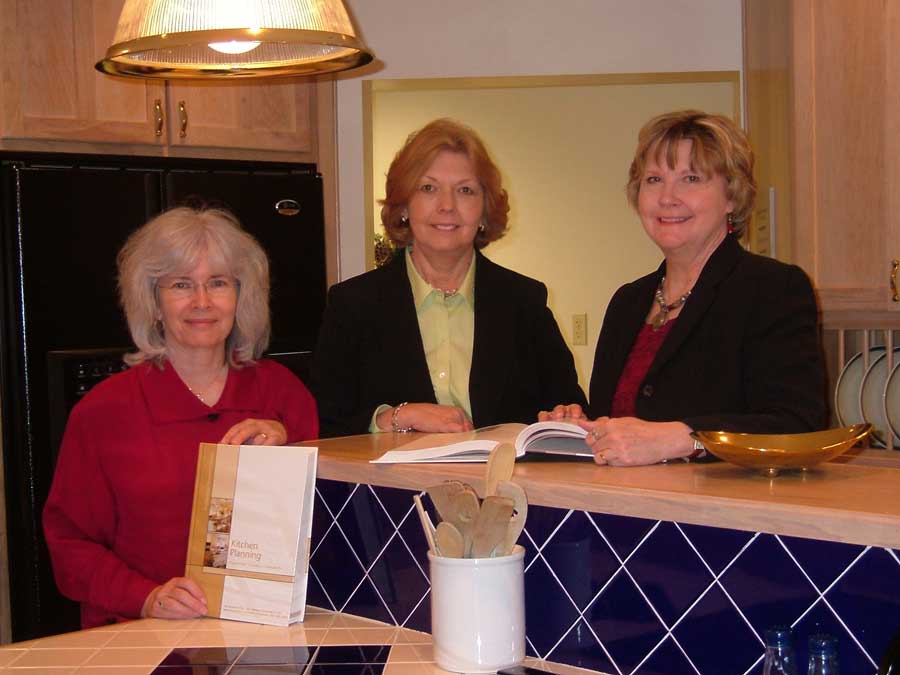Virginia Tech professors author kitchen and bath design books

Two new books for professionals in the kitchen and bath design industries have been published by a trio of Virginia Tech professors. Julia Beamish, JoAnn Emmel, and Kathleen Parrott, all of the Department of Apparel, Housing, and Resource Management faculty, and Mary Jo Peterson, of Mary Jo Peterson, Inc. have penned more than 1,000 pages on these subjects.
Kitchen Planning is a reference book providing information for the design of kitchens that are convenient, functional, efficient, and that meet the needs of today's lifestyles. With approximately 560 pages and 200 color photos and illustrations, Kitchen Planning explains in great detail concepts with regard to infrastructure, environmental considerations, universal design, and mechanical and kitchen planning. It also includes the National Kitchen and Bath Association's new planning and access guidelines, as well as codes and standards. Similarly, Bath Planning is referred to as the most authoritative planning resource available.
The Virginia Tech triumvirate has teamed up on various projects, including an extensive research project in 2000 which identified who is cooking, how people cook, what people have in their kitchens, what people do in their kitchens, and what people want in their kitchens. The results of their "Someone's in the Kitchen" study may be found on the website.
Beamish, a certified kitchen design educator who served as an at-large delegate for the White House Conference on Aging, teaches about residential space planning, with a focus on housing for older adults, universal design, and accessibility design.
"Universal design is a major trend in housing today, especially among designers planning for an aging baby boomer population," said Beamish. "The chapters on planning kitchens and baths incorporate universal design recommendations as part of good design for all people. The books also present access standards that designers can use if they are planning a kitchen or bath and need specific information about clearances or features for a person with a disability."
With an expertise in environmental issues, Parrott is also a certified kitchen design educator and co-author of Home*A*Syst: An Environmental Risk Assessment Guide For The Home, which received a US Department of Agriculture Secretary's Honor Award.
"'Green building' topics, including water quality and conservation, air quality and moisture control, energy management, and waste management and recycling, are integrated into the discussion of the design of kitchens and bathrooms," said Parrott, "and emphasize the importance of environmental considerations."
"Today's modern appliances incorporate some of the most advanced technologies you will find in a home," said Emmel, whose expertise includes residential technology selection, use and care, as well as energy management issues. "These appliances are quieter, more accurate, dependable, easy to use and extremely energy efficient. Consumers have access to a large variety of styles, sizes, and features to meet every need."
Virginia Tech is home to the newly refurbished Center for Real Life Kitchen Design, a 1,500-square foot space that incorporates six kitchen vignettes, a laundry, a home office, and flexible classroom and research space with multimedia capabilities. The center's kitchens reflect a variety of price levels, lifestyles and use of space. Newly installed products include a microwave drawer, a French door refrigerator with bottom drawer freezer, a coffee center, a high-power multifunctional burner/wok, new solid surfaces of engineered stone, and dishwasher drawers.




